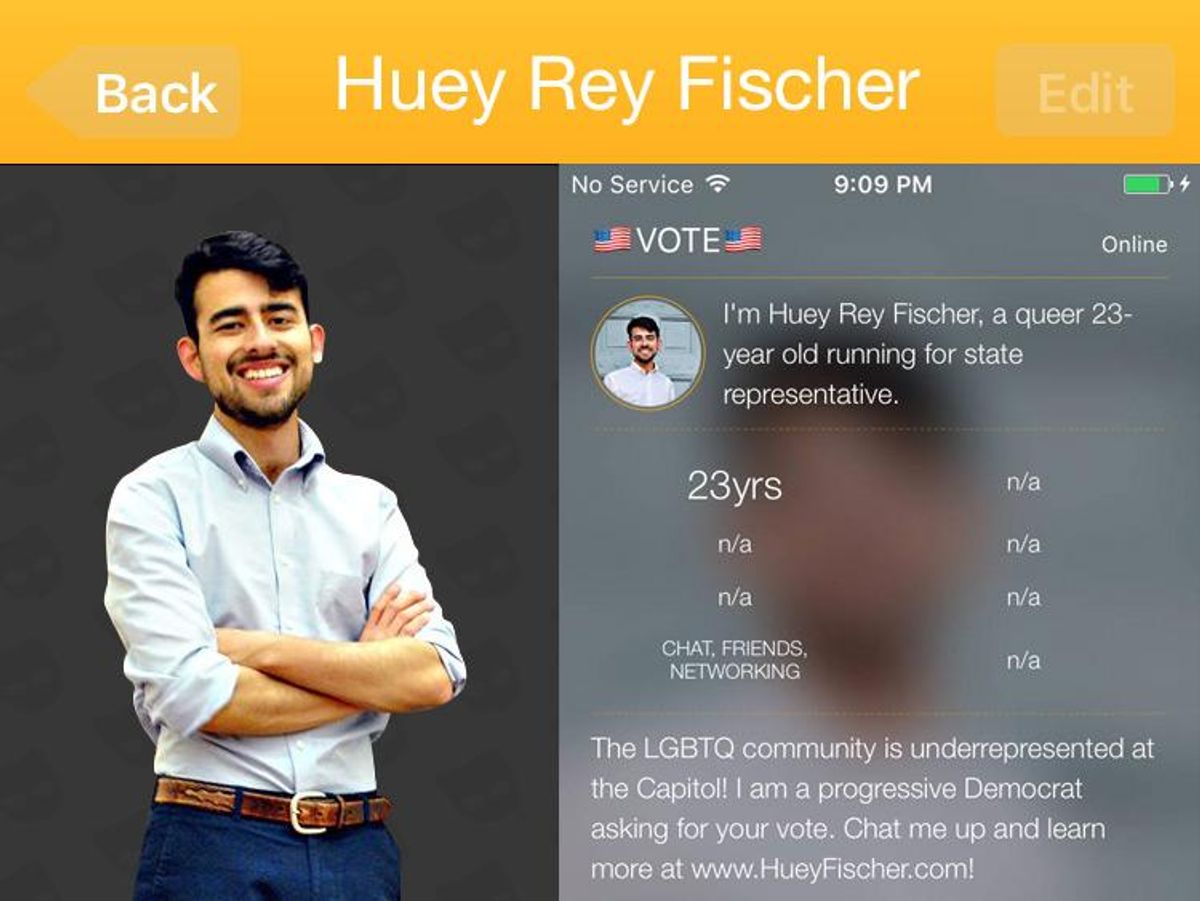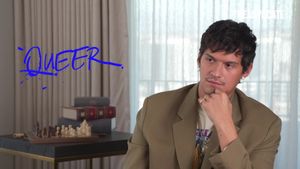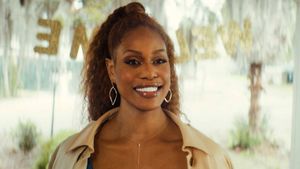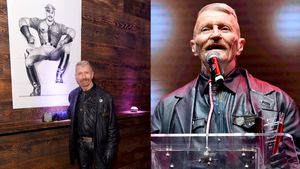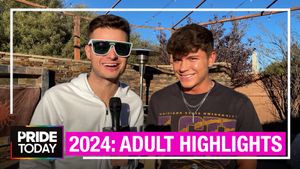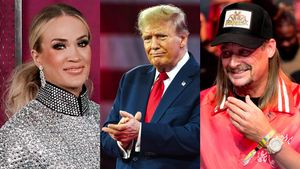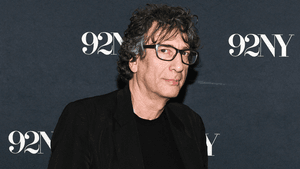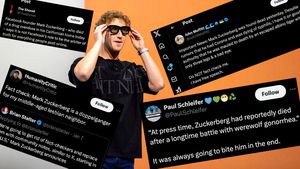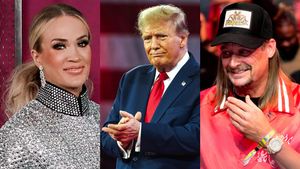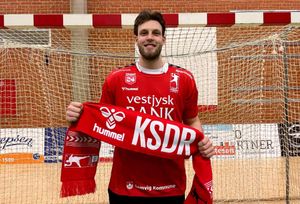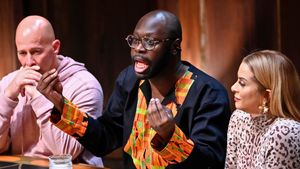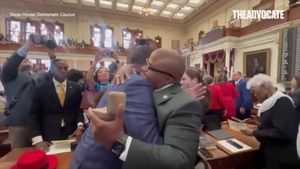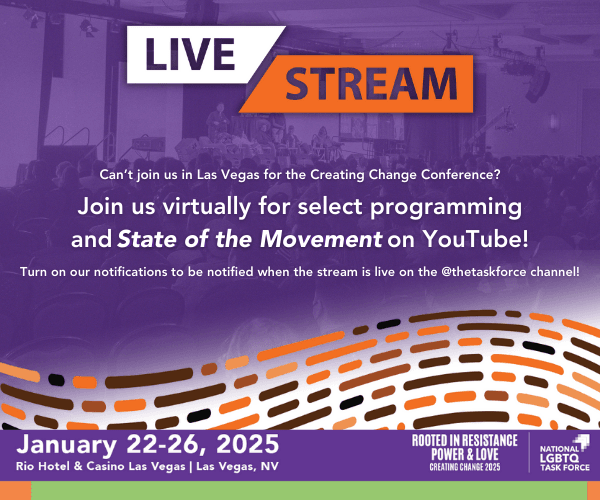Say you download a dating app, start swiping right, and then message one of the first people you match with, only to have their first reply back say, "Are you registered to vote yet?"
It may not exactly be the message you are "looking" for when you are on Grindr or Tinder. But that's what you would get on the other end of a thread with Huey Rey Fischer, a 23-year-old Democrat running for a seat in the Texas House of Representatives, who used dating apps to attract new voters.
It had been 25 years since the seat Fischer was running for last opened up, and he wasn't even born yet for three of those years. Fischer campaigned alongside six attorneys, eventually losing to one of them, but not before getting media attention for his unconventional approach to canvas voters via dating apps.
The 23-year-old, who hails from the same state as Republican presidential candidate, Ted Cruz, ran on a message of raising the minimum wage, expanding Medicare, and to "fight for all these fundamental, progressive ideas that help working families," he said. He still wants to shake up the Democratic Party in Texas because they play too much defense, he says, instead of actually standing up for things.
Out of the 150 state representatives in Texas, only two are out as LGBT -- Celia Israel, a lesbian, and Mary Gonzalez, the first out pansexual politican in the country. Fischer would have been the third, if he had been elected. Israel, one of the first openly LGBT elected officials in Texas, told The Advocate, that for her it was not a difficult decision to come out, despite doing it 30 years ago, at a time when society was much more conservative.
As someone who has been through the process of being elected, Israel had advice for Fischer and any future LGBT candidates who may want to run in Texas in the future. "When I was younger it was more difficult, but now I'm 52 years old, and it's not 1980 anymore," she said. "It's a very liberating time that we live in, so I hope that anyone who is interested in getting involved in politics knows that the number one rule is you have to be true to yourself, and if you happen to be gay, then just own it."
Glen Maxey, a state legislator in the 1990s and early 2000s and the first out politician in Texas, served as one of Fischer's mentors as he ran his campaign. Maxey challenged him during the process, asking him, "How gay are you going to be in this campaign?" Fischer identifies as queer, not gay, but he says he understood what Maxey was trying to get at, which was, "Will I openly embrace the fact that I'm queer in this race or will I shy away from it and downplay it?" he told The Advocate.

"Politics is not easy," says Fischer, and Maxey wanted to make sure he was comfortable enough to fully embrace his identity all across the board, "not just being queer, but also being the son of an undocumented mom from Mexico, and a Jewish father from Brooklyn, as well as being Catholic." The candidate had no hesitation in being open about his sexuality, but he still had detractors.
One particular supporter told him that he came off "too strong" by mentioning that he was queer, but he says he expected those types of responses, so he doesn't let them get him down. "There's always going to be some pushback," he says.
As the queer son of an undocumented mother, Fischer understands what it's like to live at the intersection of identities. Within the LGBT community, he's faced unexpected racism. "I don't think the queer community is entirely malicious to issues facing immigrants and Latinos, but there needs to be education, there needs to be awareness," he says. "I have the patience for it, but I know many people don't."
Fischer has come up across various generational differences between supporters, and one of those was a man who emailed him to ask him to stop using the word queer because it was a trigger word for him. "I couldn't agree with them," said Fischer, "even though I did sympathize that it has been a harmful word in the past, but it's a word that I fully intend to reclaim."
When Grindr is associated with politicians, it's not always for altruistic reasons. Many antigay politicians have been caught using hookup apps despite being vocally against LGBT issues. Though Fischer did not win the election, the twentysomething remains hopeful that his campaign helped to destigmatize the use of dating apps such as Grindr or Tinder.
(RELATED: 17 Antigay Leaders Exposed as Gay or Bi)
"A lot of my friends met their partners on Tinder or Grindr," he said. "It speaks to how culture and society is shifting and how my campaign is ahead of that wave when it came to bringing that into politics." Fischer's idea to use dating apps as a tool to "match" with voters came from his alma mater. A student government campaign at the University of Texas used it last year and he says, "We realized it's a great way to connect with people our age."
He's not the only one who thinks that. Tinder recently launched a "Swipe the Vote" campaign, that matches voters with the candidate that most closely represents their interests by asking them a series of questions.

Apart from the dating apps, Fischer says he ran a "traditional campaign," with the limited resources he had, such as knocking on doors. But he wanted to find a way to distinguish himself and reach voters who may not be attracted to "traditional" forms of political advertising.
"It was an engaging way to connect, especially on Grindr, to connect with young queer Austinites," he said. "They saw somebody who looked like them, they saw my face right there, they read my short bio, and it makes the decision so much clearer."
Fischer didn't want to spam potential new voters, so he would only message people if they initiated the conversation. "It worked," he says. When he was out knocking on doors, or at the University of Texas West Mall, people would come up, and say, "Huey, I got you. We chatted on Grindr yesterday."
"It happened a lot more often than I expected, so it was successful," he says.
While being queer is a central part of Fischer's identity, it's not why he ran.
"I ran because there are so many people being marginalized and left out of politics," he says. Fischer has high hopes for the rise of LGBT leaders in politics. He is sure he will one day get to witness the first queer president of the United States. "I mean, I'm 23, so that's another 60 years. I'm banking on it."
